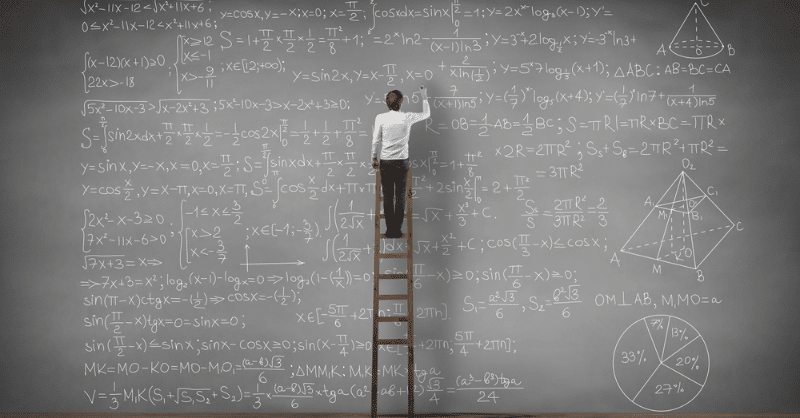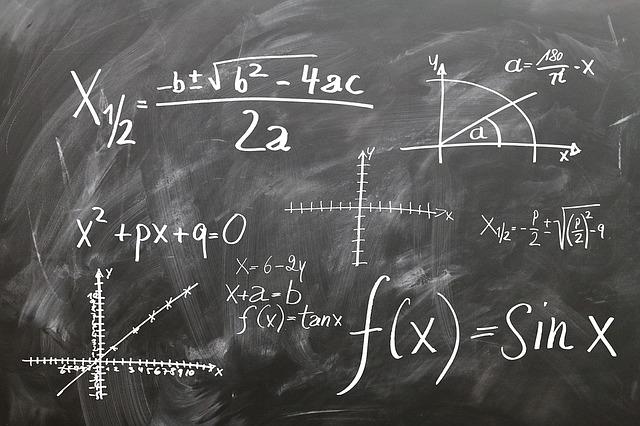
Who invented math . We are born with the ability to understand math, which makes it a subject that is found almost everywhere. Indigenous cultures, for example, may have understood math concepts, as they developed systems for measuring time, weight, and numbers, but they used different expressions and symbols to convey these concepts. Counting is an expression that is universally understood, but there are many different origins of math.
Hippasus who invented math
Hippasus is often credited with inventing math, but his exact origin is unknown. According to legend, he drowned at sea after suggesting that some numbers cannot be divided by another number. This idea was considered shocking by the Pythagorean school of maths. However, Hippasus| who invented math , pals later proved it to be correct. In fact, some irrational numbers are more common than others.
Mathematical Secret
There is another story associated with Hippasus: he was murdered for revealing a mathematical secret! Interestingly, he was not killed by a mob, but was murdered because of a potentially dangerous ratio. Some believe this was because he revealed a mathematical secret that was too dangerous to keep secret.
Hippasus’ Discovery
Hippasus’ discovery changed the course of Western mathematics. It showed that lines and square proportions could not be described by simple ratios. It also made it clear that all magnitudes are not represented by single points. Instead, they are made up of continuous magnitudes. This newfound knowledge prompted the rise of geometry, a science that deals with relations between the different kinds of magnitudes.
Context of The Pythagorean Cult
It is important to note that Hippasus’ invention of math is believed to have occurred in the context of the Pythagorean cult, which may have resulted in his death. The Pythagoreans engineered a plausible accident in order to keep the discovery hidden. The Pythagoreans also wanted to keep irrational numbers secret. However, the truth of this story remains uncertain.
Thales
The ancient Greek mathematician Thales was responsible for the invention of geometry. Thales adapted Egyptian methods to make measurements and calculations, including calculating the height of a pyramid using its shadow. Later Greek mathematicians refined his methods, building the Antikythera Mechanism and developing deductive logic in mathematics.

Thales’ Observations
Thales’ observations of nature helped him discover how the world worked. Using his observations, he calculated the height of the Great Pyramid and even predicted solar and lunar eclipses. who invented math , discoveries also helped improve navigation. The astronomers of his time were able to predict the exact date of an upcoming solar eclipse.
Thales Methods
His methods was based on a pragmatic approach to the creation of the world, stripping it of any supernatural aspects. This approach was the first step to applying rational thought, and it was pursued by his students, including the Pre-Socratic Philosophers (Socrates, Plato, and Aristotle).
Thales’ Work
Thales’ work questioned the traditional Greek religion, which held that the world was created by gods. However, he was never persecuted for his work and seems to have enjoyed widespread respect. His successors, Apollodorus of Athens, and Leucippus, adopted his work. Later, Anaximander, Democritus, and Heraclitus followed Thales’s path, adopting Thales’s ideas to explain the motion of objects.
Thales Discovery
Thales is credited with the discovery of five geometric theorems. These include the following: the circumference of a circle is divided by its diameter, the angles formed by intersecting straight lines are equal, and the length of a triangle’s base is equal to the height of its base. However, it is hard to quantify the extent of Thales’ mathematical achievements.
Euclid
Euclid who invented math by combining ideas from different fields. He formulated twenty-three definitions in Book One, and five postulates and common notions that he used as building blocks in his proofs. Book Two deals with geometric algebra. Book Three investigates properties of circles, and Book Four concerns the construction of regular polyhedra. Finally, Book Five establishes the theory of proportion.
After Euclid’s Death
After Euclid’s death, his books were translated into Latin. This translated version was published around 1120 AD. In 1570, the English merchant Sir Henry Billingsley adapted it into English. Euclid’s works became a part of the curriculum in many schools, and he remains a central figure in the history of mathematics.

Other Authors Comment on Euclid Work
The Elements is considered the most important textbook in the history of mathematics. Although written in Greek times, many authors have added their own comments. Pappus and Heron, among others, wrote commentaries on Euclid’s work. Later, Theon of Alexandria re-edited it for clarity and consistency.
Euclidean Geometry
Euclid’s work is unique in that it incorporated all of the math that was known in his time. It includes four-hundred and sixty-five theorems and proofs. The Elements were written in a logical and elegant way. Euclid also reworked many concepts of his predecessors to form what we now know as Euclidean geometry.
Pythagoras who invented math
Pythagoras is born on Greek island of Samos in 6th century BCE. Although the exact details of his life and work are unknown, his name means “announced by a Pythian.” Pythagoras who invented math ,was the father of modern mathematics, a branch of philosophy that has evolved throughout the centuries.
Pythagoras Work
Pythagoras is best known for his theorem, which states that the square of a triangle’s hypotenuse is equal to the square of its other two sides. This has many applications, including measuring space and distance. Although ancient writers often attributed Pythagoras with this discovery, modern scholars point to Babylonian texts as the source of Pythagoras’ theorem.
Pythagoras Discovery
Pythagoras also incorporated music into his work. He was one of the first to discover that the pitch of a musical note could be translated into a mathematical equation. In addition to his math work, he also discovered a connection between the length of a vibrating string and the pitch of the note. He then performed experiments with different levels of water, observing how each level represented a musical note. This work later became the foundation of René Descartes’ theories on the nature of music.
Pythagoras History
The ancient Greek philosopher Pythagoras lived on the island of Samos in the late sixth century BC. He later traveled to Egypt, where he studied the art of mathematics. During his travels, he met Thales of Miletus. He later became a member of the Brotherhood of the Pythagoreans, which is devoted to the study of mathematics. This society had rituals, symbols, and prayers dedicated to Pythagoreanism. In addition, Pythagoras who invented math believed that the universe is ruled by number and attributed numerical values to many objects and phenomena.
Archimedes who invented math
Archimedes was a Greek scientist who discovered many fundamental mathematic theorems. He also invented the screw and discovered the law of the lever. His scientific discoveries paved the way for modern physics and mathematics. He also discovered the principles behind gravity. In fact, Archimedes is credited with the discovery of the theory of gravitation in 1906.

Method Concerning Mechanical Theorems
The method Archimedes used to invent math was called the “Method Concerning Mechanical Theorems,” which was the first work of its kind to survive antiquity. The mechanical method Archimedes employed to arrive at key discoveries included dividing a two-dimensional figure into a series of infinitely thin strips. Each strip would have a weight that equals the ratio of the two figures.
Archimedes History
Interestingly, Archimedes who invented math ,did not write a biography about himself. Only a few written documents have survived his life. The astronomer Isadore of Miletus wrote about him in 530 BCE, and other scholars have mentioned the man. He is believed to have been born in Syracuse around 287 BCE. His father was an astronomer.
Archimedes Life
The mathematician had an interesting life. He lived in Greece until his twelfth birthday, when he moved to Egypt. He developed an interest in science and math, and was fascinated by shapes and numbers. After learning more about shapes and numbers, he wrote a book about geometry. His book, called the Method, was dedicated to Eratosthenes of Cyrene, the head of the Alexandrian library.
Who Invented Math Al-Karaji
During his life, al-Karaji lived in Baghdad and wrote most of his important works there. His surname suggests he may have been from a city called Karaj or al-Karkhi, a suburb of Baghdad. Whether he was from Baghdad or Iran, al-Karaji was a mathematician of great calibre, who may have invented algebra. He also made many important contributions to mathematics, including the multiplication of polynomials. His works also changed algebra from a collection of collected operations to geometric ones, making it more accessible to the average person.
His Methods
who invented math Al-Karaji was also the first to use proof by mathematical induction, which is a method that requires a first-order axiom to be true. This method was used by the Persians and Chinese in the 11th century to solve mathematical problems. While Pascal and his contemporaries also used this method to solve complex equations, he was the first to use it to prove a proposition.
Mathematicians Contributions Who Invented Math
During the Renaissance, Persian and Middle Eastern mathematicians made many important contributions to the study of mathematics. who invented math , One of these is Muhammad ibn Musa al-kharizmi, who made great advances in algebra and solved quadratic equations with positive roots. Other developments made during this time include algebraic notation and algebraic geometry.
